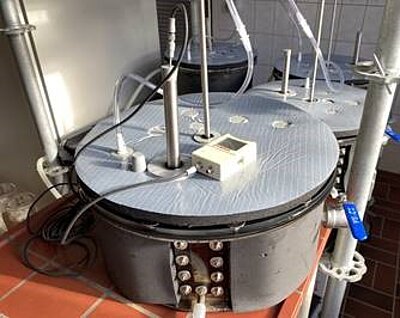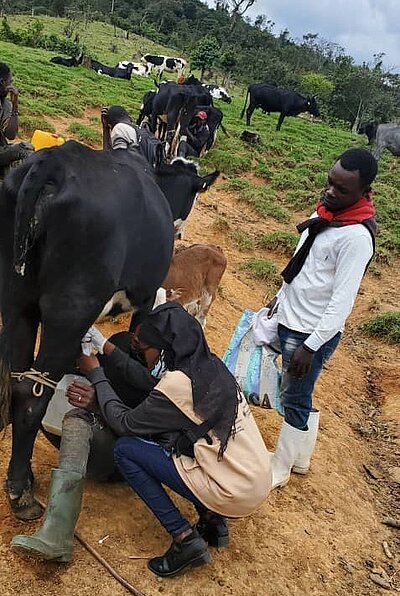WG Infections and antimicrobial resistances in livestock
The working group "Infections and antimicrobial resistances (AMR) in livestock" investigates prevalence, transmission and reduction measures of infections, zoonoses and AMR within livestock husbandry (cattle, pigs, poultry) and their environment. With special regard to the One-Health concept, the consideration of complex interactions between humans, animals and the environment plays a central role. To interrupt infection chains and AMR spread, it is necessary to identify pathogen sources and to know and characterize transmission pathways more precisely. Based on the knowledge gained, effective and practically implementable prevention and mitigation measures will be defined. These should serve to reduce the use of antibiotics in livestock farming, increase animal welfare and animal health, and reduce the risk to humans and the environment from infections of animal origin (zoonoses).
In detail, the group is investigating:
- The airborne spread of particulate matter, microorganisms, and AMR by aerosols during manure application on the field.
- The survival and reduction of pathogens in chicken manure by different manure treatments (composting, fermentation, storage, addition of easily digestible carbon sources) and the modulation of different parameters (moisture, temperature, C/N ratio, pH, etc.).
- The occurrence, transmission and reduction of AMR Enterobacteria in pig farms. The influence of the housing system, hygiene and feed on AMR prevalence will be investigated.
- The early detection and characterization of mastitis (udder inflammation) in dairy cows. This includes milk microbiome analysis and AMR characterization of cows with and without mastitis or antibiotic treatment. The knowledge gained will be used to develop a multisensory and early risk assessment system for mastitis.
- Microbiome changes in slurry storage tanks (on the farm and on laboratory scale) depending on the type of slurry (cattle or pig), the season (temperature) and the filling level of the slurry tank.
- The development of an innovative barn design for livestock under high biosecurity and animal welfare standards. Here, the focus is on testing new decontamination procedures in the animal environment and the early detection of infection outbreaks using various biosensors.
- Investigating antibiotic use and resistance incidences in dairy farming in the Democratic Republic of Congo (Africa) using participatory One Health data management systems.
We are actively involved in the Leibniz research alliance "INFECTIONS" and work in close interdisciplinary cooperation with many national and international research institutions.





